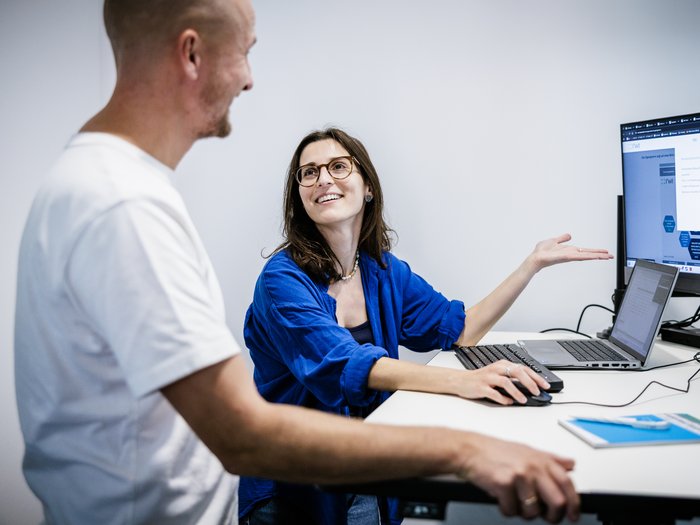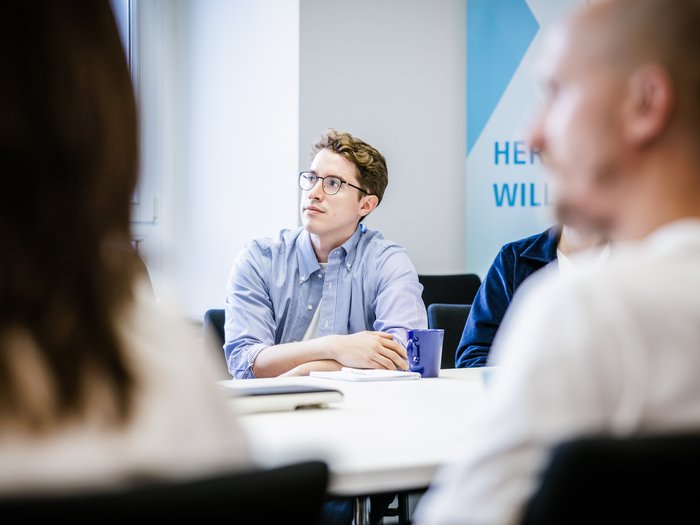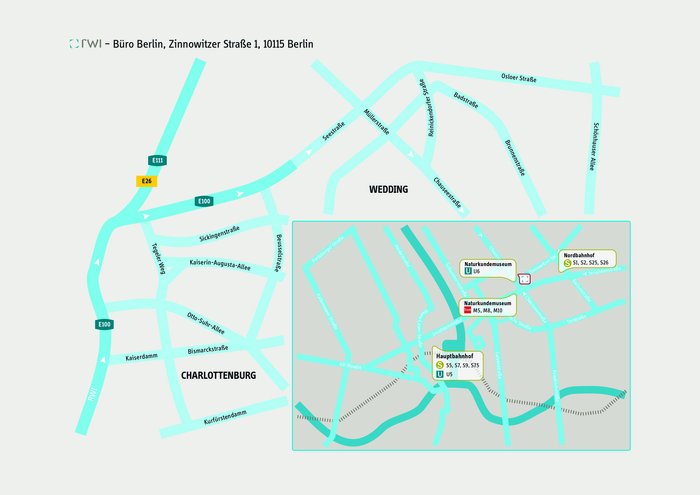THE BERLIN OFFICE OF RWI

RWI in Berlin: Science meets politics
Since 2007, the RWI – Leibniz Institute for Economic Research has been combining economic research with practical policy advice at its Berlin location. Our Berlin office strengthens the institute's presence in the German capital. We build bridges between research and politics.

Dual expertise: scientific networking and policy advice
The team in Berlin works closely with Berlin universities and communicates research findings directly to decision-makers. Politicians, media professionals and other stakeholders can find expert answers to economic questions here.
The team consists of researchers from all RWI areas of expertise as well as from the research groups Global Migration and Microstructure of Tax and Transfer Systems.

Active networking in the research landscape
Since 2023, the RWI Berlin Network Seminar has regularly invited leading scientists from Berlin and the surrounding area. Interested parties can participate after registering.
Furthermore, we coordinate important Berlin research networks and seminar series together with our partner institutions:

Knowledge transfer through events
Our Berlin office organises conferences, workshops and dialogue formats on current economic policy issues. We bring research, politics and society into conversation.
At RWI Impuls, you will find a confidential space for scientifically sound policy discussions. Here, research and decision-making come together directly. RWI Impuls is our exclusive round-table format in Berlin.
If you would like to learn more about our events or participate in our networking seminar, please contact us at Claudia.Schmiedchen@rwi-essen.de.
Upcoming events
Speaker: Izabela Wnuk-Soares (Rockwool Foundation/DIW)
Location: Hybrid – Berlin Office and Teams Link
Time: 1:30 - 2:30 pm
Titel: tba
Speaker: Moritz Lubczyk (ROCKWOOL Foundation Berlin)
Location: Hybrid – Berlin Office and Teams Link
Time: 1:30 - 2:30 pm
Title: tba
Speaker: Sevrin Waights (HU Berlin)
Location: Hybrid – Berlin Office and Teams Link
Time: 1:30 - 2:30 pm
Title: tba
Speaker: Johanna Arlinghaus (Hertie School)
Location: Hybrid – Berlin Office and Teams Link
Time: 1:30 - 2:30 pm
Title: tba
















